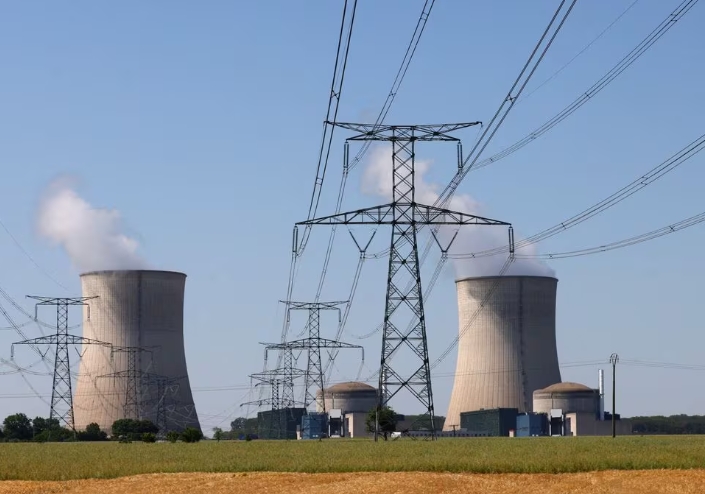
Higher French output comes just as a cold snap extending from the Nordic countries has lifted regional demand for heating, and has allowed Europe's largest electricity exporter to boost clean power flows to neighboring nations so far this year, data from the International Energy Agency shows (IEA).
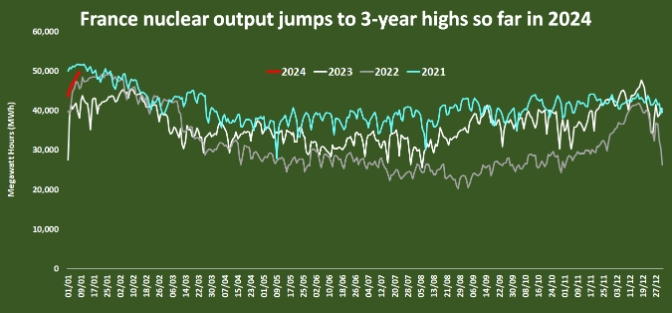
France nuclear output jumps to 3-year highs so far in 2024
If France's main power provider EDF can sustain high levels of clean power output and exports, utilities elsewhere may be able to limit fossil fuel use in power generation this winter, and potentially avert the traditional surge in power pollution tied to greater heating-related generation.
REACTOR REBOUND
Extended maintenance issues at key but aging reactors curbed France's nuclear generation to 34-year lows in 2022, forcing power firms to increase fossil fuel use in electricity generation in Europe's most nuclear-dependent power system.
Nuclear output shortages also forced French power firms to sporadically reverse traditional power flows within Europe by becoming net importers, worsening the regional power price crisis in the wake of Russia's invasion of Ukraine.
Engineers worked to restore output through 2023 and managed to lift total nuclear generation by nearly 15% by the end of the year from 2022's stunted total, LSEG data shows.
So far in 2024, France's main power firm EDF has managed to take the output recovery a step further by sharply surpassing output levels in early 2023 and 2022, although production continues to lag 2021's total by around 10%.
Several key reactors require further maintenance work in 2024 due to corrosion issues, but EDF has said it is targeting total nuclear output of 365 terawatt hours (TWh) by 2025, compared to just under 320 TWh in 2023, according to Ember. The company aims to produce 400 TWh of nuclear output by 2030.
HIGHER EXPORTS TO LIMIT EMISSIONS?
If France's nuclear generation totals remain well above last year's stunted levels for the coming months, the country may be able to sustain its recent high levels of clean power exports to neighbouring nations.
Through Jan. 9, France has been an average daily net exporter of over 12.2 gigawatts (GW) of power, with close to 3 GW heading to Germany and a further 6 GW distributed to Switzerland, the United Kingdom and Italy, according to International Energy Agency (IEA).
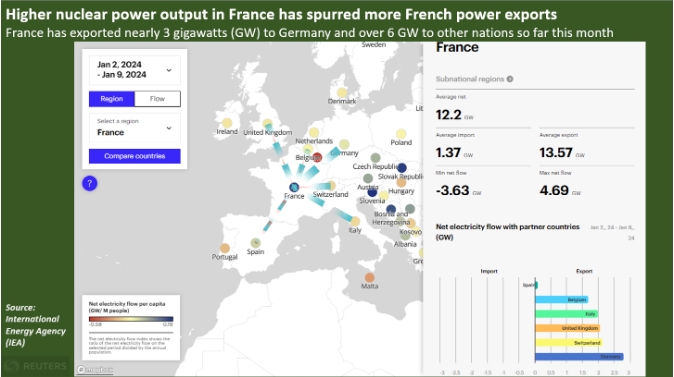
Higher nuclear power output in France has spurred more French power exports
That net export total is nearly 70% greater than over the same period in 2023, when France was a net importer of power from Spain and was forced to constrain exports to key markets such as Switzerland and Italy due to limited domestic output.
And while key economies such as Germany have a total average power demand of around 65-70 GW every hour, the 5-10 GW of power imports the country makes daily do help reduce the strain on domestic power producers.
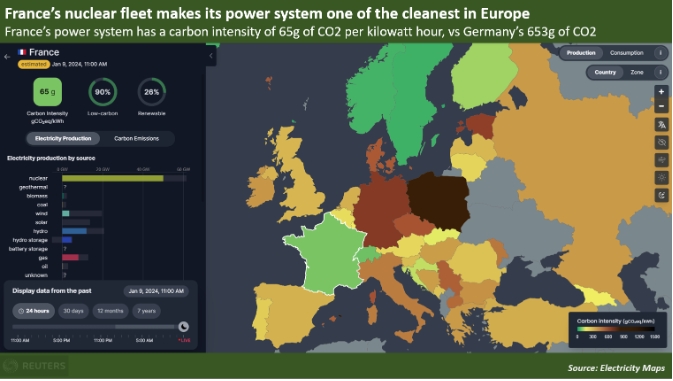
France’s nuclear fleet makes its power system one of the cleanest in Europe
Regular clean power imports also help reduce the need for local power firms to use high polluting power sources, such as coal plants, which can be major contributors to regional emissions tallies.
Coal accounted for around half of the European power sector's 1.42 billion metric tons of CO2 emissions in 2023, but generated only 14.2% of the region's electricity.
That means that any measures that can reduce coal's share of the generation mix can result in significant cuts to potential pollution tallies.
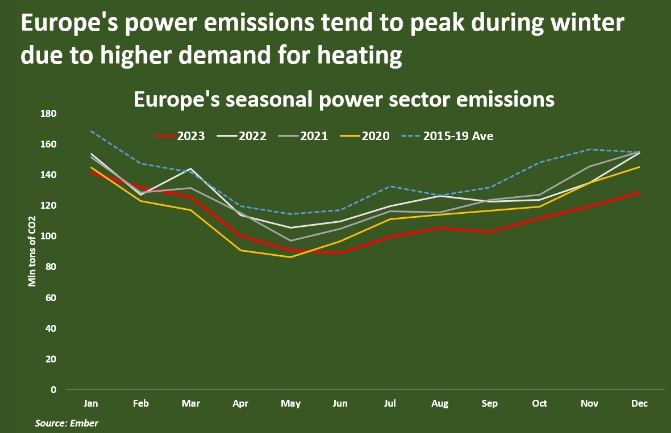
What's more, Europe's power emissions tend to peak during the winter when higher heating demand spurs the region's power producers to increase output from all sources - including coal - in order to meet elevated energy consumption levels.
This year, if France's power firms can keep up the strong pace of nuclear output seen so far, Europe's other power producers may be able to keep coal generation levels in check, and in the process keep a lid on pollution.